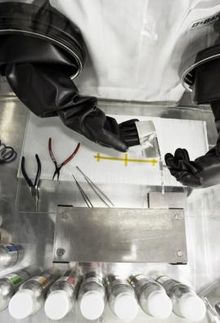Better catalysts make better fuel cells
Electricity-powered molecular catalysts that may prove vital for a new generation of fuel cells designed.
Advertisement
Yale chemists have created a framework for designing electricity-powered molecular catalysts that may prove vital for a new generation of fuel cells.
Also called electrocatalysts, these substances boost the rate of a chemical reaction by decreasing the energy input along the way. In fuel cells, electrocatalysts can be used to improve the efficiency of generating, converting, and storing energy.
In a new study Yale professor James Mayer, graduate student Michael Pegis, former Yale postdoc Bradley McKeown, and colleagues at four other institutions looked at various ways to improve electrocatalysts by reducing energy losses. Mayer is the Charlotte Fitch Roberts Professor of Chemistry at Yale, and is the paper’s corresponding author. Pegis is the paper’s first author.
“We are developing an atomic-level understanding of these catalytic systems, allowing us to imagine new approaches to designing efficient systems to convert oxygen to water,” Pegis said.
The chemical reaction in this case, oxygen to water, is critical for the advancement of fuel cell technologies, the researchers noted. Fuel cells harness the energy of chemical bonds in the form of electricity, and can power laptops, automobiles, and homes.
“The key aspect of this finding is that it provides guidelines for future catalyst design,” Pegis said. “Oxygen activation with molecular electrocatalysts has been studied for decades, but very few reports have illuminated rational design principles to guide future research. We have gained tremendous insight by identifying the relationships between catalyst structure and activity, and now have a handle on what motifs should be necessary to improve efficiency.”
An important feature of the study is the emphasis on the flow of protons as well as electrons, he added.
























































